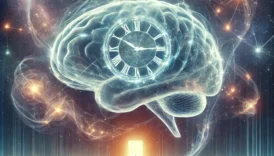Precognitive Dreams
Visions of the Future
Precognitive dreams, often described as glimpses into future events, are among the most fascinating phenomena in the realm of human consciousness. These dreams challenge our understanding of time, intuition, and reality. This guide explores the nature of precognitive dreams, scientific and psychological theories, historical accounts, and how to interpret and harness their potential.
- Precognitive Dreams
- 1. What Are Precognitive Dreams?
- 1.1 Key Characteristics
- 2. Theories Behind Precognitive Dreams
- 2.1 Scientific Perspectives
- 2.2 Psychological Theories
- 2.3 Spiritual and Metaphysical Views
- 3. Historical Examples of Precognitive Dreams
- 3.1 Abraham Lincoln’s Assassination Dream
- 3.2 Titanic Premonitions
- 3.3 Natural Disaster Forewarnings
- 4. Understanding Precognitive Dreams
- 4.1 The Role of Coincidence
- 4.2 Déjà Vu and Dreams
- 5. Interpreting and Harnessing Precognitive Dreams
- 5.1 Steps for Interpretation
- 5.2 Applying Precognitive Insights
- 6. Scientific and Philosophical Considerations
- 7. How to Enhance Precognitive Dreaming
- 7.1 Cultivate Dream Awareness
- 7.2 Foster Intuition
- References
1. What Are Precognitive Dreams?
Precognitive dreams are defined as dreams that appear to predict or foreshadow future events. They often feel unusually vivid, emotionally charged, and memorable, setting them apart from ordinary dreams.
1.1 Key Characteristics
- Temporal Connection: The dream aligns with a future event, either in detail or essence.
- Emotional Intensity: These dreams are typically accompanied by a strong emotional response, such as urgency, fear, or awe.
- Symbolism and Specificity: While some dreams are symbolic, others are strikingly specific, describing real-life occurrences in detail.
Example: Reports of individuals dreaming about a plane crash days before the event occur are well-documented.
2. Theories Behind Precognitive Dreams
2.1 Scientific Perspectives
- Pattern Recognition: The human brain excels at identifying patterns and extrapolating outcomes based on prior experiences and subtle environmental cues.
- Subconscious Processing: Dreams may synthesize information that the conscious mind has overlooked, creating scenarios that align with likely future events.
Example: Dreaming of an impending storm could stem from subconsciously noticing changes in weather patterns.
2.2 Psychological Theories
Freud’s theory of dreams as expressions of repressed desires contrasts with Jung’s idea of dreams as connections to the collective unconscious. Jung suggested that archetypal symbols in dreams might represent universal truths or insights into the future.
(Source: Jung, C. G. (1964). Man and His Symbols.)
2.3 Spiritual and Metaphysical Views
In many cultures, precognitive dreams are seen as spiritual messages or divine warnings.
- Christianity: Biblical accounts often feature prophetic dreams, such as Joseph’s visions in Egypt.
- Indigenous Beliefs: Native traditions view dreams as sacred, connecting the dreamer to higher realms or ancestral spirits.
3. Historical Examples of Precognitive Dreams
3.1 Abraham Lincoln’s Assassination Dream
Shortly before his death, President Abraham Lincoln dreamt of his own funeral in the White House. This eerie coincidence has been widely discussed as a classic example of precognitive dreaming.
3.2 Titanic Premonitions
Several passengers on the Titanic reported having foreboding dreams of a sinking ship. Some heeded these dreams and changed their plans, while others did not.
3.3 Natural Disaster Forewarnings
There are numerous accounts of individuals dreaming about earthquakes, tsunamis, or other disasters before they occurred. Such dreams often prompt speculation about an intuitive connection to environmental changes.
4. Understanding Precognitive Dreams
4.1 The Role of Coincidence
Not all dreams that seem precognitive are truly predictive. The human mind often connects unrelated events, a phenomenon known as confirmation bias.
4.2 Déjà Vu and Dreams
Déjà vu—the sensation of having experienced a moment before—is sometimes linked to dreams. A dream fragment might resurface in waking life, creating the impression of foreknowledge.
5. Interpreting and Harnessing Precognitive Dreams
5.1 Steps for Interpretation
- Keep a Dream Journal: Document your dreams immediately upon waking to track recurring themes or patterns.
- Identify Emotional Triggers: Pay attention to strong emotional responses in your dreams, as these often signify meaningful content.
- Analyze Symbolism: Look for metaphors and archetypes that may reveal deeper insights.
5.2 Applying Precognitive Insights
- Personal Guidance: Use dreams as a tool for decision-making, reflection, and self-awareness.
- Actionable Warnings: Treat precognitive dreams involving danger as an opportunity to take precautionary measures.
6. Scientific and Philosophical Considerations
Precognitive dreams remain a topic of debate within scientific and philosophical circles. While neuroscience suggests logical explanations, such as subconscious processing, others explore concepts like quantum mechanics and time perception.
Source: Barrett, D. (2001). The Committee of Sleep.
7. How to Enhance Precognitive Dreaming
7.1 Cultivate Dream Awareness
- Mindfulness Practices: Meditation and mindfulness can improve dream recall and awareness.
- Regular Sleep Routine: A consistent sleep schedule enhances the likelihood of vivid dreaming.
7.2 Foster Intuition
- Pay Attention to Hunches: Strengthen your intuitive abilities by acting on subtle insights in daily life.
- Explore Lucid Dreaming: Learning to control dreams may help you better understand and engage with precognitive content.
Precognitive dreams offer a fascinating glimpse into the potential of human consciousness. Whether interpreted as intuitive foresight, spiritual messages, or subconscious processing, they inspire us to question the boundaries of time and perception. By exploring these dreams with curiosity and an open mind, we can unlock deeper layers of self-awareness and understanding.
References
- Jung, C. G. (1964). Man and His Symbols.
- Freud, S. (1900). The Interpretation of Dreams.
- Barrett, D. (2001). The Committee of Sleep.
- Dossey, L. (2009). The Power of Premonitions: How Knowing the Future Can Shape Our Lives.
Precognitive dreams remind us of the profound and mysterious capabilities of the human mind. Embrace your dreams, for they may hold the keys to your future.





